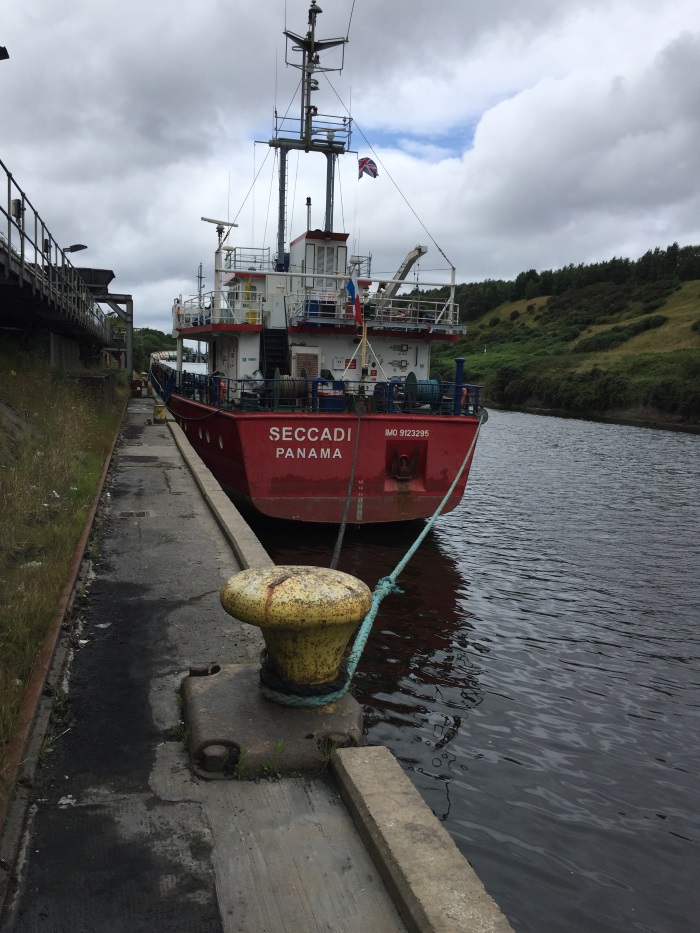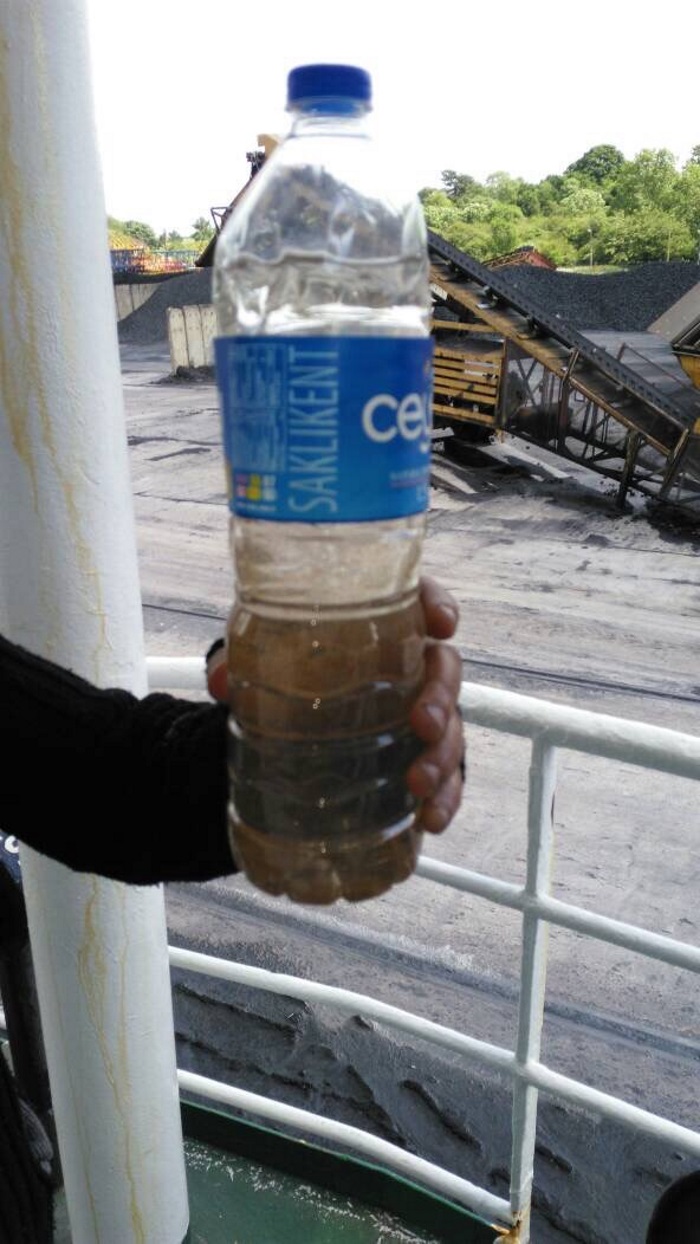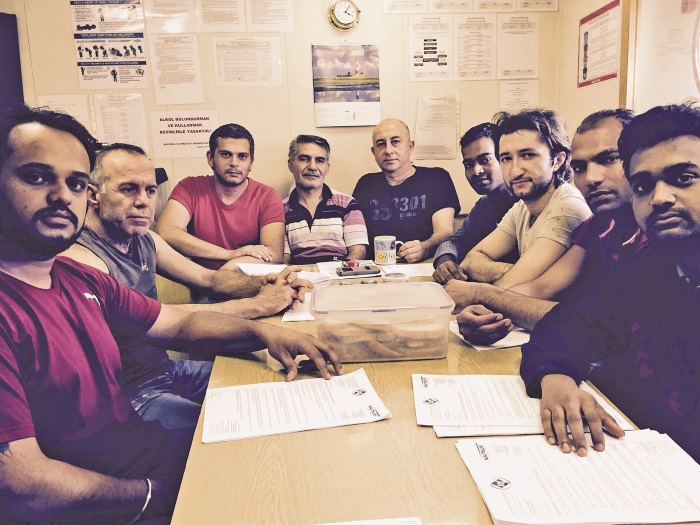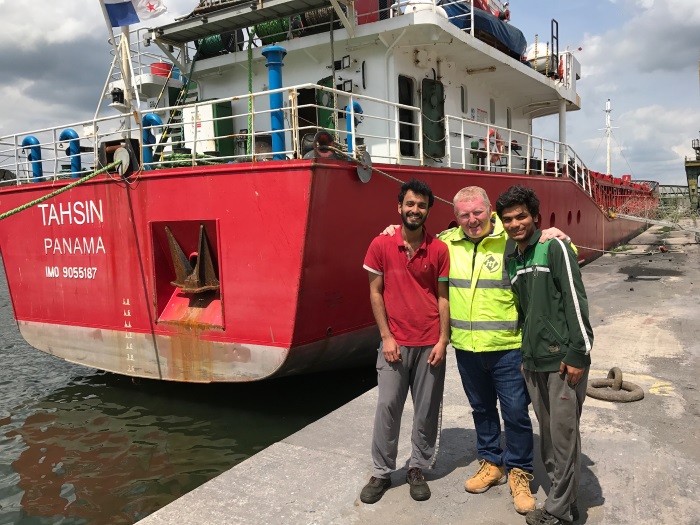The ITF (International Transport Workers’ Federation) has successfully supported the crew in three ship abandonment cases in UK waters that show a culture close to modern day slavery in some parts of the shipping industry.

“The regulation exists to prevent this abuse from happening but some people seem to think it doesn’t apply to them,” commented ITF seafarers’ section chair Dave Heindel.
“The Maritime and Coastguard Agency (MCA) and UK Border Force deserve recognition for their efforts to enforce regulation intended to maintain decent standards for all seafarers – action by the flag state has yet to be seen. It’s also disappointing to see the reluctance of the P&I club to step up and pay out under the requirements that came into force in January this year under the amended Maritime Labour Convention, 2006.”
He continued: “We are closely monitoring the operation of these provisions ahead of our reporting on them to the ILO (International Labour Organization) and IMO (International Maritime Organization). What these cases reveal is a tendency to take the word of the owners at face value and ignore both the evidence onboard and the fact that this insurance was specifically designed to allow direct access to seafarers and their representatives. This cannot be tolerated.”



The three cases all involve one owner, Voda Shipping of Istanbul, Turkey. They are the Reggae in Port of Leith, Scotland; Tahsin in Sharpness, England; and Seccadi in Ellesmere Port, England.
ITF inspector Darren Proctor recounted the case of the Panama-flagged Tahsin:
“The vessel entered Sharpness, Gloucestershire on 31 May and was detained by the MCA after a complaint was received regarding outstanding wages and drinking water.
“The crew consisted of five Turkish crew, two Indians and two Georgians. None of them had been paid for three months, but the Indian crew had not been paid since joining in September and October 2016, and had had to pay to even get the jobs. One of the contracts for an AB was for USD250 total per month.
“Following ITF intervention seven of the nine crew (the master still remains onboard and the cook only recently joined) were repatriated and paid in full, including at the ILO minimum wage for the one illegally contracted for just 250 dollars a month.
“There were many findings onboard, including evidence of the crew drinking seawater as there was no potable water on the ship for over 10 days, out of date food, non-operational galley equipment and a genuine concern over the labour practices. The master thought it was acceptable to pay the crew every three months and not keep wage accounts. The vessel has since been revisited by the MCA and issued with a further list of deficiencies.”
ITF inspector Liam Wilson reported on the case of the Reggae: “I can now confirm all wages are paid until the end of June and all crew are to be replaced from the vessel with full entitlements. Three months of the conditions they have been living and working under is enough for anyone. The risk they face is too high for them to simply sail out of port again and for the cycle of abuse and mistreatment to start again – they might not experience the same positive outcome next time.”
ITF inspector Tommy Molloy, talked about the Seccadi: “The crew, who had been paid as little as USD0.85 an hour, have finally been repatriated. The ship owner was informed by the Border Force when the ship was detained by the MCA that if all issues were not resolved by the end of the defined period that the vessel was allowed to remain in the UK, the Force would have little option but to deport the crew. In fact, the Force granted an extension to their leave of stay which was to expire on 12 July 2017.
“Lodestar, the P&I club responsible for abandonment insurance, claimed it would be premature to trigger the insurance mechanism, in spite of the fact that all aspects of abandonment were in evidence (failure to pay wages for more than two months, failure to repatriate, failure to provide adequate provisions).
“For the first 10 days of the detention nothing much was done. In the meantime the Tahsin and Reggae were also detained for the same issues. The company started to pay wages on Seccadi but things were looking even grimmer on the other two vessels.’
“After much pressure the owners claimed that they would repatriate three Indian crew members on Saturday 8 July. They provided the flight details but not the tickets. Afterwards one of these crew members told me he had paid for a ticket for an onward connecting flight to his home region from Mumbai. He lost this ticket when the ticket from the company did not turn up. I asked why he was paying for part of his journey home. It was then that we discovered that the crew were all required to pay for their own flights from their home countries to Istanbul and then the company would fly them from there to join a ship. The same applies on the way home, another breach of the MLC.
“It was also revealed that the Indian crew members had to pay thousands of dollars to the crewing agent the company uses in India for ‘training’ and ‘certificates’. They either have to find this money in advance or are effectively tied to the company until this amount is paid back. This is a further breach.
“I have never dealt with a company so incapable of understanding what was required of them to get out of the mess they had created. By Monday 10 July both myself and Border Force personnel were telling the captain and the company that if all matters were not resolved by Wednesday 12 any remaining crew would be removed and deported. No replacement crew members from outside of the EU would be allowed into the UK while the vessel had no departure date and no next port of call notification. It was explained that they could not accept a new crew by simply parachuting them into the same situation with no clear end date in sight. Late on Monday the owners finally provided six tickets – but stated that three crew members could remain and would be joined by a replacement crew!
“The remaining crew – captain, AB and oiler – were in a very precarious position. The captain did not want ITF assistance but the two ratings, having previously agreed to stay to complete their contracts, now realised that their only option was to request repatriation by the owner. Once again the ship owner was in denial. So much so that I had to tell them that to avoid deportations the ITF would buy the two crew members their tickets and the cost would be added to the outstanding claim. The three of us were in a travel agency about to buy the tickets when the owner called to say the company would buy the tickets and pay the AB his owed wages. They also decided to fly the captain home at the last minute.
“We will not know if the AB’s wages have been paid until he gets home. What we do know is the owners purchased the cheapest tickets they possibly could, giving both ratings stopovers at connecting airports of fourteen and a half hours – with no money. The MLC states that the owner must provide the seafarer with accommodation and food for the duration of their journey and that a ticket with a baggage allowance of 30kg must be provided. The tickets purchased by the owners only provided 20kg. The AB phoned me later to tell me he had put a bag of his personal possessions weighing 10kg into the bin.”
Source: ITF